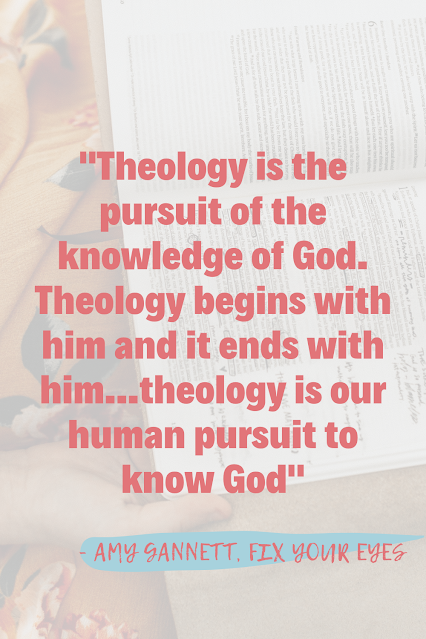How to Connect Your Theology to Your Everyday Life
What is theology?
How Does a Person Connect Their Theology to Their Everyday Life? (And Why Does It Matter?)
What good is it, my brothers, if someone says he has faith but does not have works? Can that faith save him? If a brother or sister is poorly clothed and lacking in daily food, and one of you says to them, “Go in peace, be warmed and filled,” without giving them the things needed for the body, what good is that? So also faith by itself, if it does not have works, is dead.But someone will say, “You have faith and I have works.” Show me your faith apart from your works, and I will show you my faith by my works. You believe that God is one; you do well. Even the demons believe—and shudder!
As Christians, our works do not save us. The Bible reminds us time and time again that salvation is of the Lord ( 2 Timothy 1:9) and that it is by his grace that we are saved (Ephesians 2:8-9). However, these verses in James are very clear that our works do matter. This is because our works often show what's really going on in our hearts. In other words, our actions are little tattle-tails, running around telling whether or not we are being transformed by our theology.
Our actions also tend to show us what our priorities really are. Do we spend more time worrying about our future than trusting God for his sovereignty? Then perhaps we haven't allowed our theology to fully shape the way we think about struggles in this life and God's plan for us. Do we spend more time outraged over what we see on the news, on social media, or our company's policy on so and so issue than we do loving on people, being the hands and feet of Jesus, or sharing the gospel? This is probably revealing our misplaced priorities.
Now, let's be clear. God changes our hearts. And for the believer, he gives us the strength and ability to do what he calls us to. It's also important to realize that no Christian is sinless on this side of heaven, so we will struggle with sin until the Lord takes us home. But if our theology (the things we know to be true about God) doesn't lead us to shape our lives around these truths, it may be time to examine our hearts and figure out why that is.
Connecting our theology to our everyday lives means that we let the truths of God leave us in awe of him. It means choosing what is pleasing to God instead of momentary pleasure. It means thinking critically about what we see on social media, on the news, or even what we hear our Christian friends saying and asking ourselves things like "how does the gospel inform the way I should think about this topic", "how should I react to this in light of who God is", or "what is going to glorify God the most in this situation?
It takes time to get in the habit of asking ourselves questions like these, but I believe that when we take the time to think Christianly about our everyday lives we will find ourselves connecting our theology to our actions more often.
Pray
As we seek to live for Christ and let our theology impact our lives, let's not forget to come boldly to the thrown of God and ask him for help (Hebrews 4:16). After all, it's God who will finish the work he started in us (Philippians 1:6). God will help us persevere until the end. Let's continue to humble ourselves before him and ask him to help us and give us the strength we need to do what he has called us to. He is faithful.
Did you enjoy this post? Pin it for later.
You may also like:
- God is Good and God is Near: 12 Bible Verses About God Being With Us
- How to Focus on God (and Not the World)
- 4 Reasons Why Christians Stop Growing in Their Faith
.png)



No comments